World-class Microbial Resource Center - Re-evaluating and developing bioresources in Indonesia -
World-class Microbial Resource Center
- Re-evaluating and developing bioresources in Indonesia -
Research Fields and Areas
Bioresources
SATREPS project : Development of Internationally Standardized Microbial Resource Center to Promote Life Science Research and Biotechnology
 Biological resources play a significant role in research and industry as the source of new biotechnology and medicines. The bioresources of developing countries in tropical areas where there is great biodiversity are particularly attractive as subjects for research. However, there has been long debate over how best to apportion profits from the use of such resources to the developing country where they originated. Last year, however, the 2010 Conference of the Parties to the Convention on Biological Diversity (COP10) succeeded in reaching an agreement, adopting the Nagoya Protocol on Access and Benefit-sharing, which aims to ensure fair and equitable sharing of the benefits arising out of the utilization of genetic resources. As a result, developing countries are attempting to accurately determine what bioresources they own, are working to establish research centers to manage those resources appropriately, and are constructing the foundations for international joint research to promote the utilization of the resources through relationships with developed nations. The project introduced here involves Indonesia, one of the countries with the greatest biodiversity in the world. Diversity is being lost, however, with the destruction of the natural environment. The Research Center for Biology (RCB) at the Indonesian Institute of Sciences (LIPI) plays a central role in the efforts to preserve Indonesia's own natural resources, and already has Zoology and Botany divisions established as JICA projects. Microorganisms may not be visible to the naked eye, but they are still vital for producing food and for the environment, so a project was required to establish a research capability for microorganisms.
Biological resources play a significant role in research and industry as the source of new biotechnology and medicines. The bioresources of developing countries in tropical areas where there is great biodiversity are particularly attractive as subjects for research. However, there has been long debate over how best to apportion profits from the use of such resources to the developing country where they originated. Last year, however, the 2010 Conference of the Parties to the Convention on Biological Diversity (COP10) succeeded in reaching an agreement, adopting the Nagoya Protocol on Access and Benefit-sharing, which aims to ensure fair and equitable sharing of the benefits arising out of the utilization of genetic resources. As a result, developing countries are attempting to accurately determine what bioresources they own, are working to establish research centers to manage those resources appropriately, and are constructing the foundations for international joint research to promote the utilization of the resources through relationships with developed nations. The project introduced here involves Indonesia, one of the countries with the greatest biodiversity in the world. Diversity is being lost, however, with the destruction of the natural environment. The Research Center for Biology (RCB) at the Indonesian Institute of Sciences (LIPI) plays a central role in the efforts to preserve Indonesia's own natural resources, and already has Zoology and Botany divisions established as JICA projects. Microorganisms may not be visible to the naked eye, but they are still vital for producing food and for the environment, so a project was required to establish a research capability for microorganisms.

Principal investigator (Japan):Dr. SUZUKI Ken-ichiro
Department of Biotechnology, National Institute of Technology and Evaluation (NITE)
Specialized in bacterial taxonomy. Graduated from Tokyo University. Headed the Japan Collection of Microorganisms (JCM) Microbe Division at the RIKEN BioResource Center. From 2001, worked to establish the NITE Biological Resource Center (NBRC), becoming its founding director.
 Japan perspective
Japan perspective
Sharing Japan's classification technology
Even microorganisms for which no value has yet been found can be re-evaluated and gain new value through being classified and having their functions evaluated and redefined.
Gaining access to Indonesian resources
By sharing the technology developed by the NBRC for preserving and managing bioresources, Japan and Indonesia can collaborate to manage bioresources efficiently. Achieving that objective benefits Japan by facilitating appropriate access to Indonesian bioresources.

Principal investigator (Indonesia):Dr. Siti Nuramaliati Prijono
Director, Research Center for Biology (RCB), Indonesian Institute of Sciences (LIPI)
Specialized in zoology, particularly in theriogenology (reproduction) of wild birds. Graduated from University of Glasgow. Headed the Zoology Division in the Research Center for Biology (RCB) at the Indonesian Institute of Sciences (LIPI), then moved into the LIPI administration. Became Director of the RCB in 2008.
 Indonesia perspective
Indonesia perspective
Collaborating to create a world-class facility
By means of JICA Technical Cooperation projects, LIPI has already established Zoology and Botany divisions within the Center. The reputation of LIPI's Bogor Botanic Gardens is on a par with that of the Royal Botanic Gardens at Kew in the UK or Leiden University Botanical Garden in the Netherlands. Through this SATREPS project, the Microbiology Division will also be able to play an important academic role as a globally-recognized microbe collection facility, and is expected to make a key contribution to the management of Indonesia's bioresources.
Project summary
Indonesia is located in the tropics, and is home to animals such as the orangutan and the komodo dragon. It has some of the greatest bio-diversity in the world. Consequently, there is a strong chance of discovering microorganisms that are different from those in Japan. Interest is growing in the use of microbial resources in agriculture, foodstuffs, and medicines because the technology is seen as friendly to the environment. In this project, researchers collect microorganisms that are potentially useful for agriculture and livestock production, determining their characteristics and creating a database that contributes to the preservation and sustainable use of microbial resources.


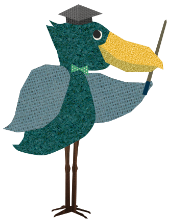
 Dr. SUZUKI
Dr. SUZUKI
 "NITE has already been working with LIPI on joint research projects for six years. Indonesia was keen to make good use of the achievements of that collaboration by concentrating all the country's microbial resources in a single key domestic entity that could be extended and managed as required instead of conducting research through the sort of agreements between NITE and LIPI that we have used in the past. The policy of the owner of the bioresources (the country) taking responsibility for proper management of those resources is becoming increasingly vital for resource preservation in countries throughout Asia, not just Indonesia."
"NITE has already been working with LIPI on joint research projects for six years. Indonesia was keen to make good use of the achievements of that collaboration by concentrating all the country's microbial resources in a single key domestic entity that could be extended and managed as required instead of conducting research through the sort of agreements between NITE and LIPI that we have used in the past. The policy of the owner of the bioresources (the country) taking responsibility for proper management of those resources is becoming increasingly vital for resource preservation in countries throughout Asia, not just Indonesia."
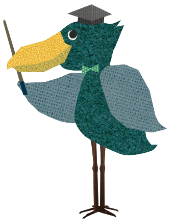
 Dr. SUZUKI
Dr. SUZUKI
"One of the things that we constantly consider in our work is how the people of Indonesia can learn that the country's microbial resources are valuable assets, are important for daily life and for industry. I would like to see the Indonesian people acquire the technology and knowledge of taxonomy so as to be able to accurately recognize and identify these assets independently, not just in the context of R&D targeting their utilization. In Japan, people have used microbes to make rice wine and to ferment beans since ancient times, producing long-term profit-spinners for the food sector. Indonesia also has traditional fermented food products such as tempeh, based on soybeans, so I have firm hopes that people will begin to recognize the potential for use of microorganisms."

 Dr. SUZUKI
Dr. SUZUKI
 "The importance of collaboration is that joint research brings researchers in Japan and Indonesia closer together. Even in earlier projects between NITE and LIPI where the focus was more on technology transfer, with Indonesia providing resources and information, part of the reason for the success of the projects was that researchers communicated well and shared their expertise. In fact, many of the Indonesian researchers involved in this SATREPS project obtained their doctorates at Japanese universities. In the new project, they will be making good use of what they learned during the time they were in Japan. This time, the focus is more on joint research, so over the five years of the project, 25 Japanese researchers will visit Indonesia on a short-term basis, and some 60 researchers from Indonesia will come to Japan, also for short periods. We are convinced that this approach will enhance communication and strengthen the bonds between the two countries' researchers."
"The importance of collaboration is that joint research brings researchers in Japan and Indonesia closer together. Even in earlier projects between NITE and LIPI where the focus was more on technology transfer, with Indonesia providing resources and information, part of the reason for the success of the projects was that researchers communicated well and shared their expertise. In fact, many of the Indonesian researchers involved in this SATREPS project obtained their doctorates at Japanese universities. In the new project, they will be making good use of what they learned during the time they were in Japan. This time, the focus is more on joint research, so over the five years of the project, 25 Japanese researchers will visit Indonesia on a short-term basis, and some 60 researchers from Indonesia will come to Japan, also for short periods. We are convinced that this approach will enhance communication and strengthen the bonds between the two countries' researchers."

 Dr. SUZUKI
Dr. SUZUKI
"The microbiologists from both countries have a common interest in the research, but in this case, there is a government agency acting as manager. The government's approach will naturally be one of attempting to ensure that the country maximizes the gains it receives through the collaboration. How to reconcile that requirement with the researchers' approach is one of the challenges that the project has to face."

 Dr. SUZUKI
Dr. SUZUKI
"The project officially starts in spring 2011. Our first task is to set up the apparatus needed to start classifying and identifying microorganisms at LIPI, in order to fully establish a research system. In the meantime, Japanese researchers will visit Indonesia, and Indonesian researchers will visit Japan to initiate the process of technology transfer, steadily constructing the Microbial Resource Center at LIPI."

Bioresources
 Republic of Indonesia
Republic of Indonesia
Case Studies
Contact Us
Japan Science and Technology Agency (JST)
Department of International Affairs
SATREPS Group
TEL : +81-3-5214-8085
Related articles
-
Bioresources
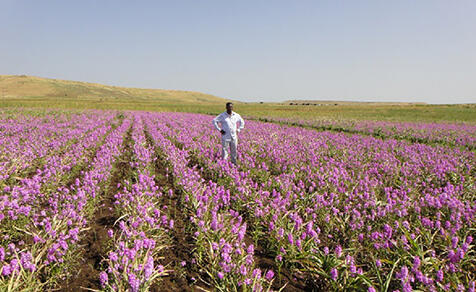
 The Republic of the Sudan
The Republic of the Sudan
Striking Out against Striga called Witchweed!
‐ Creating an Africa that can win the battle against root parasitic weeds ‐ -
Environment / Energy
(Carbon Neutrality)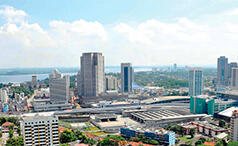
 Malaysia
Malaysia
For a future in which people can live with peace of mind
- Developing scenarios for creating low-carbon societies - -
Disaster Prevention and Mitigation
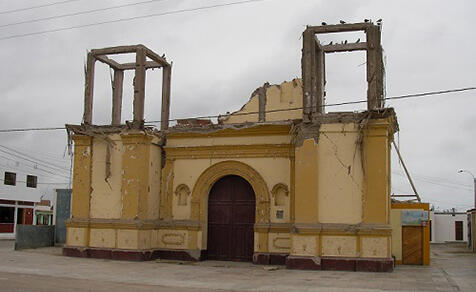
 Republic of Peru
Republic of Peru
Earthquake and Tsunami Disaster Mitigation - Global benefits from Japan-Peru research -
-
Infectious Diseases Control
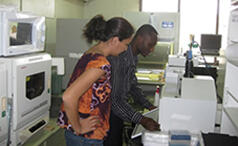
 Republic of Ghana
Republic of Ghana
Developing new medicines for infectious diseases
- Studies based on Ghanaian medicinal plants -














